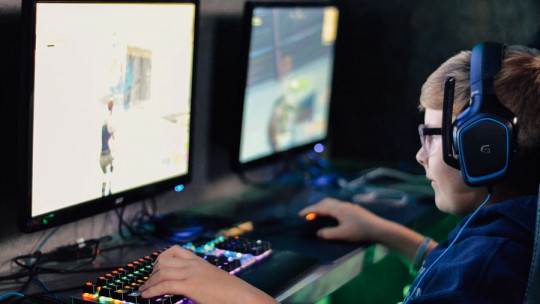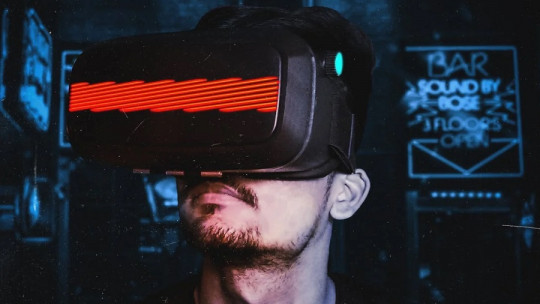Internet addiction, also known as cyber addiction, is a psychological disorder that can be expressed in a wide variety of symptoms. If we add to this the fact that it has existed for a relatively short time (and that, therefore, it is talked about as a problem), we have the perfect cocktail for hundreds of thousands of people to suffer from it without being aware of what is happening to them.
To make it easier to detect this phenomenon, here We will see what are the most important types of Internet addiction as well as its effects and characteristics.
Types of Internet addiction: what types of web pages cause the most dependence?
One of the most useful criteria for classifying the variants of problematic Internet use has to do with the format and services offered on the websites most visited by the user who suffers from this problem. The fact that there are different types of cyber addiction shows us that the network of networks should not be seen as a cause of addictive disorders, but in any case a context in which Those people most predisposed to developing problems with impulsivity and managing their emotions are relatively vulnerable to “getting hooked on the screen.”.
In other words, assuming that there are some types of websites capable of generating addiction is a somewhat simplistic and partial way of looking at things. Yes, it is true that some companies design their digital platforms trying to capture the attention of users over and over again and make it difficult to look up from the smartphone or computer, but it is also true that the majority of people who use the Internet daily do not end up suffering from cyber addiction.
Taking all this into account, let’s see what the types of Internet addiction are.
1. Online social networks
Social networking services like Instagram, Facebook or TikTok have two characteristics that make them very skilled when it comes to make us check these web pages again and again and that we lose track of time in them: on the one hand, they collect a lot of information about us through how we interact with their content, and on the other, they have the ability to offer us a constant torrent of new publications that change second by second. .
2. Online video game sites
Some online video games are complete enough to have access beyond Internet pages (for example, icons on a computer desktop), while others are only playable by accessing certain websites. In any case, the mechanics are the same; use the users themselves as game content so that each gaming session is unique and, on the other hand, arises the need to break records (in the case of tournament-based games) or to keep a group identity alive (in the case of online role-playing games).
3. Gambling websites
These types of experiences offered by online casinos deserve their own category apart from the one we have seen before, since these are not typical video games, but real machines designed to “trap” users in a loop of desire to earn money and to recover the lost money. Of the types of Internet addiction that we will see here, it is the only one officially defined as an addictive disorder, and as such it appears in the diagnostic manuals of psychiatry and clinical psychology.
4. Adult content pages
This category of websites can be divided into recorded pornography websites, on the one hand, and cybersex websites, on the other. In that case, cyber addiction overlaps in many ways with sex addiction.
5. Online entertainment pages
In this category we find other websites that do not belong to the previous types and that are anyway marketed as entertainment providers, such as YouTube. Also on this online platform there is a constant flow of new content and mechanisms are applied to offer publications adapted to the tastes of each person.
6. Trading platforms
The popularization of investments with a speculative desire has meant that many people are consulting over and over again the value of their assets, suffering a special anxiety. when they put their money in very volatile markets such as cryptocurrencies.
7. Chat platforms
Finally, the last of the types of Internet addition is possibly the oldest of all. What once started as rudimentary chat pages where it was only possible to send and receive lines of text has now become instant messaging applications that follow us wherever we go thanks to mobile technology.
The characteristics and effects of Internet addiction
Although due to the diverse and changing nature of the network of networks, the phenomenon of Internet addiction can take many forms, there are a series of general characteristics that occur in almost all of its ramifications. These are the main ones:
1. FOMO (Fear of Missing Out)
As its name in English indicates, this phenomenon is based on the discomfort generated by the idea of missing things that could be happening online in real time. FOMO tends to occur especially in types of Internet addiction in which there is a strong social component, that is, social networks, chat platforms, forums, etc.
2. Dingeing (digital bingeing)
Since today the majority of people who have developed cyber addiction own a smartphone, they end up reproducing a behavioral pattern that consists of constantly pressing the power button of the mobile phone , to quickly check your screen if you have new notifications. Due to how quick and easy it is to perform this action, they can do it every few minutes, even when interacting with other people, driving a vehicle, working…
3. Sleep problems
A person who is always aware of the screen of their device connected to the Internet will have many difficulties falling asleep. You will be exposed to the light from the screen even when you are in bed with the light off, and at the slightest stimulus similar to the sound of your smartphone, you will check your phone, instead of relaxing to sleep well.
4. Withdrawal anxiety
In any type of Internet addiction, The simple fact of not being able to connect to the network for hours makes the person develop anxiety and a feeling of anguish arises in her. This makes you feel the need to use your computer or cell phone as soon as possible.
5. Irritability when faced with interruptions
Another characteristic that is reflected in the behavior of people with cyber addiction is that They get in a very bad mood when something or someone requires their attention and they have to stop looking at the screen. This frequently causes family arguments.
What is therapy for Internet addiction like?
When it comes to therapeutically intervening in problematic Internet use, most of the strategies used by mental health professionals are based on psychotherapy. Specifically, we work with patients to, first of all, detect the triggers of that anxious response to the experience of going many hours in a row without connecting to the network; and secondly, to carry out training in techniques for managing impulsivity and emotions.
For this, some of the resources used in psychological therapy are relaxation exercises, controlled exposure to anxiety-inducing stimuli, cognitive restructuring, time management techniques (for example, action triggers) and psychoeducation, among others. In the most severe cases in which cases of pathological gambling (gambling addiction) are actually hidden behind the appearance of Internet addiction, the use of psychotropic drugs prescribed by the doctor may be necessary.
If you want to go to therapy to overcome any of the types of Internet addiction, contact us. In Psychology For We serve adults, adolescents and children, and we have more than two decades of experience in the field of mental health.









